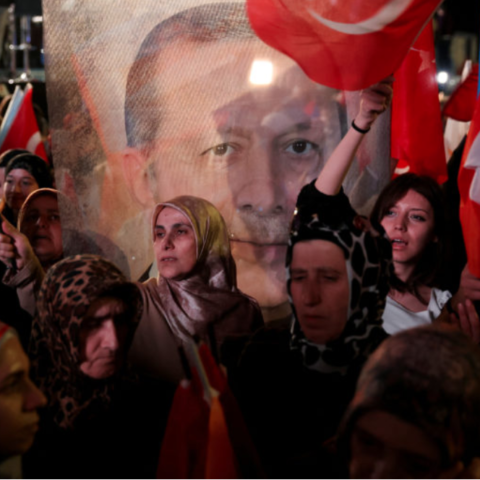
The Influence of Literature on Tension Between Japan and South Korea
During World War II, Japan systematically trafficked over 200,000 women, girls, and boys in its occupied territories (Dudden 2022). In 2015, the Japanese and South Korean governments came together in a press conference (the Japan-ROK Agreement) to verbally acknowledge Japan’s trafficking and treatment of sexual slaves—commonly referred to as “comfort women.” During the joint conference, Kishida Fumio, former foreign minister of Japan, apologized on behalf of Prime Minister Abe and offered one billion yen—roughly seven million USD—as reparations to be implemented over time. In South Korea, the public denounced the agreement for not including input from surviving victims and citizens; a recent 2020 poll showed that 59% of South Koreans thought the deal should be nullified (Lee et al. 2017). Just a few weeks following the Japan-ROK Agreement, President Abe backtracked on the apology, saying, “‘There was no document found that the comfort women were forcibly taken away’” (Hosaka 2017). When the South Korean government pressed President Abe to directly apologize, he declined, saying “‘I have no intention of apologizing again’” (Hosaka 2017). But this year, South Korean President Yoon Suk Yeol and Japanese Prime Minister Fumio Kishida held a summit in attempts to restore a diplomatic and economic relationship between the two countries. This summit was the first bilateral meeting in decades, and the two sought to make amends about Japanese occupation. But as attempts to relieve bilateral tensions between South Korea and Japan continue, two obstacles stand in the way: Japan’s revisionist approach to history and the influence of far right misinformation campaigns.
Both issues are connected to literature. In 2021, the Japanese education ministry’s textbook screening process implemented updated guidelines for content discussing “comfort women” and called for publishing companies to revise expressions such as “forcibly brought,” “recruited,” and “mobilized” (Kuwabara et al. 2022). This stems from the Japanese government’s stance on the topic—backed by documents they claim negate the existence of territorial sex trafficking—and repeated denial of forced sexual enslavement at the global stage. Japan’s Ministry of Foreign Affairs published a statement titled “Japan’s Efforts on the Issue of Comfort Women” and emphasized that it had accomplished all provisions of the 2015 Japan-ROK Agreement. There is also a note on the use of the term “comfort women” at the bottom of the statement that says, “…the use of [‘comfort woman’] is not a reflection of the recognition that these statues correctly embody the reality of those women at that time.” The official statement goes on to say that the Japanese government does not support language such as “forceful taking away” or “sex slaves.” (Ministry of Foreign Affairs of Japan). Additionally, public and academic support for the revisionist movement, fueled by the Japanese government’s attempts to reframe its history, has advanced abroad. Japanese historians and academics have requested textbooks abroad to revise their facts about the occupation, imploring publishing companies like Mcgraw-Hill to fix the language about Japanese occupation in college textbooks. “Comfort women,” they say, were “…simply prostitutes” (Fifield 2015). But the basis for the Japanese government’s conclusion, evidence described vaguely as “documents,” leaves room for question. According to the Ministry of Foreign Affairs of Japan website, their study was conducted with the “…various collections of testimonies as well as results of testimony hearings of former comfort women in the Republic of Korea” (Ministry of Foreign Affairs of Japan). Could these first hand accounts have been purposefully mistranslated to support their stance? The specific “documents” the Japanese Ministry of Foreign Affairs used are unavailable for public review, but there are first-hand accounts from a web database established in 1994 by the Japanese government, though funded by taxpayer money and private donations. In this database, translated testimonials from Korean, Filipina, and Taiwanese women are available, and terms like “comfort woman” and “forced to provide sexual services to the Japanese men” are used. The database is a reflection of a former effort within Japan to provide reparations to victims of Japan’s systematic sexual enslavement, though public sentiment about the topic has shifted now. In 2007, the fund (Asian Women’s Fund) was dissolved following mounting criticisms.
Under former Prime Minister Abe’s administration, consistent denial of the existence of “comfort women” inadvertently supported far-right ultranationalist groups like the Zaitokukai to target ethnic Koreans living in Japan through Japan’s book industry. The Zaitokukai have been around since 2006 and have over 9,000 members; the organization’s original aim was to stomp out state welfare for ethnic Koreans living in Japan (McCurry 2014). When the government turned its focus to textbooks, the Zaitokukai took to the leisure reading market. For example, in 2021, the Zaitokukai successfully boosted sales of a hate book about Koreans. Though the book did not receive attention from large bookstores, it reached 300,000 sales with the help of far-right online outcry (Sharkey 2021). This form of political power, online collective action, could be the reason translated books like Min Jin Lee’s Pachinko, a story about Korean struggle during the Japanese occupation, don’t reach the Japanese mainstream as readily as literature that supports nationalist ideas. Groups like Zaitokukai, who operate in hard-to-find online spaces, hold the power to influence discourse about other countries. To them, Korea is the “Other,” and empowered by government denial, their influence can only grow.
Western Bias in Literature
Shaping countries as the “Other” through literature is not a new concept and is certainly not restricted to countries with conflicted pasts. Many non-Western books do not reach wide-scale audiences because they do not appeal to Western markets.
Edward Fowler, a former professor of East Asian Studies at UC Irvine, shared how publishing companies selected translated literature for wider audiences. In his article, he ascribed Western audiences’ pre-existing notions about a book’s nationality being paramount to what books were selected to be translated and dispersed to an English-speaking audience. He recalled a publishing conference in which Alfred Knopf released two translations of Japanese books after World War II. The two selected books, Homecoming by Osaragi Jiro and Some Prefer Nettles by Tanizaki Jun’ichiro, were chosen because of their marketability; they corroborated American views of Asian exoticism and paralleled the changing shifts in American perception of Japan (Fowler 1992, 6-11). The popularity of Homecoming and Some Prefer Nettles reawakened interest in East Asian literature in the 1940s and points to two things: a book cannot be timeless if people are not interested in reading it, and translated texts cannot gain influence unless they align, in some part, with Western ideas.
There have also been studies about how Western audiences decide the level of “foreign” a book is.
Masuo Miyoshimi, former professor of Comparative Literature at UC San Diego, categorizes Western readers’ unfamiliarity with “third-world texts” into two paths: readers, he says, choose either to domesticate or neutralize the exoticism of the text (Auestad 1993, 240-241). Because of this trend amongst consumers, translated literature must continue to follow certain figurative rules to make the foreign text palatable to Western audiences. One example lies in Deborah Smith’s translation (some argue mistranslation) of The Vegetarian by Han Kang. Before Smith’s translation of Kang’s novel, the original book (first published in 2007) sold just 20,000 copies in its nine-year solo run. After Smith’s translation, which won the Man Booker International Prize, sales jumped to 462,000 copies by the middle of 2016 (Kahng 2016). Smith’s translation was initially praised for her stylistic translation choices, hence the Man Booker Prize, but then criticized by Korean audiences for her embellishment of Kang’s simple sentences. Charse Yun, professor at Korea National Open University and Ewha Womans University, led the critical front, saying, “‘Smith amplifies Han’s spare, quiet style and embellishes it with adverbs, superlatives and other emphatic word choices that are nowhere in the original…This doesn’t just happen once or twice, but on virtually every other page’” (Fan 2018). Yun goes on to say that Kang’s original sentences, rooted in a deep literary history, were purposeful in that the passivity of her narrators were meant to capture the intimacy of her text. Smith’s approach to translation took an “activist” approach (Wood); she translated Kang’s sentences to encapsulate the visceral reactions her words gave her. For example, when Yeonghye, the protagonist, ignores her husband, a faithful translation says it is “as if she hadn’t heard me,” while Smith’s activist translation says Yeonghye was “…perfectly oblivious to my repeated interrogation” (Smith). Other literary critics have come to Smith’s defense, saying that a literal translation word-for-word would not have catapulted the text to international stardom (Armitstead 2018). Some argue that this is problematic. If representations of East Asian literature have little chance to reach wider audiences with their original style; alignment with Western consumerism, first realized in the 40s, is still relevant today. In any case, Smith’s figurative liberties, in attempts to increase The Vegetarian’s palatability to Western audiences, worked. Her translation set itself apart from the originalist style of translation that is common in translated East Asian literature. The marketability of translated literature, then, is intrinsically tied to how comfortable audiences are with a given texts’ degree of exoticism: how similar a text is to other texts from their country. An international book is then commonly translated not for its literary value, but for its familiarity to Western audiences—familiarity translates to marketability, and marketability translates to value.
If this is the case, global audiences will continue to miss out on valuable literature from non-Western countries, and in doing so, not have the opportunity to digest the political, social, and economic perspectives of that country. Readers are the market, and all it takes is increased interest in translated literature to level the publishing field for non-Western writers. Translated literature diversifies our understanding of the world and has the power to humanize people’s lived experiences. The flip side is the colonial “Us vs. Them”, and that is a dangerous place to be.


